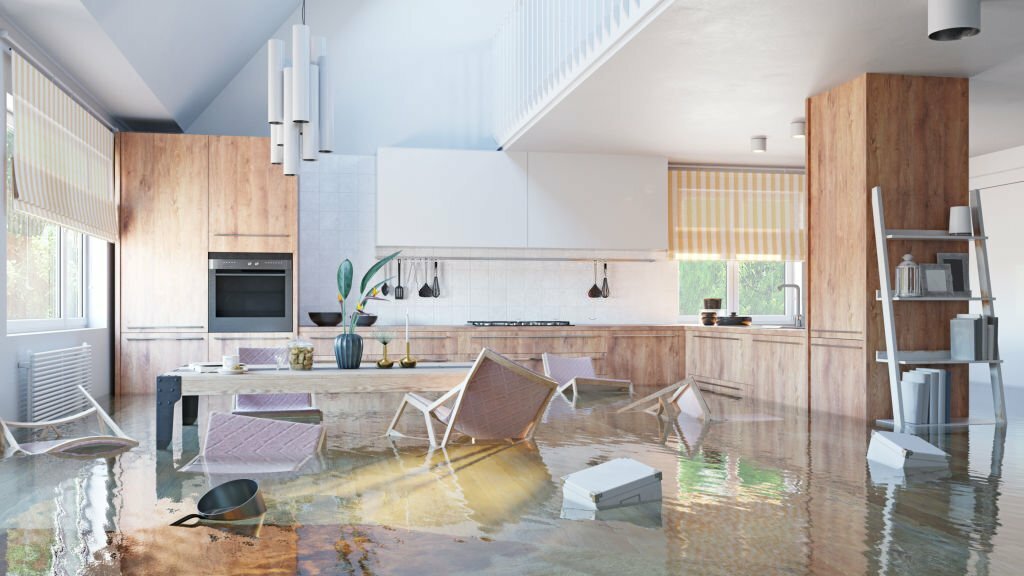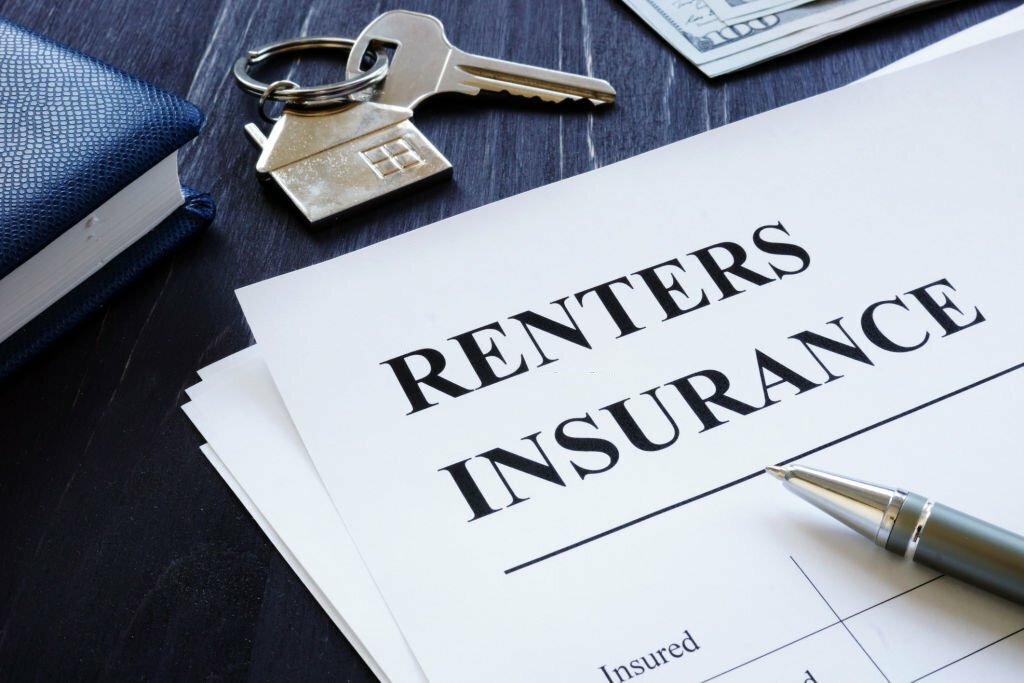Home Flood Insurance: Protecting your home, which is the most significant investment you’ll ever make, is paramount. Safeguarding it against potential disasters should be a top priority.
Flooding is particularly noteworthy among the various natural disasters that pose significant risks. Flooding can occur unexpectedly and anywhere, wreaking havoc on homes and properties.
Even a few inches of water can lead to extensive damage, leaving homeowners with a substantial financial burden that can be challenging to overcome. Homeowners should prioritize obtaining flood insurance to secure investment and peace of mind.
This article will explore the importance of home flood insurance, its coverage details, and why every homeowner should seriously consider adding it to their insurance portfolio.
Understanding Flood Insurance and Its Significance
Homeowners must know that flood insurance is a separate policy to protect their properties from flood-related damages. Realizing that standard homeowners insurance does not cover these incidents is crucial.
As a result, if a flood damages your home and you don’t have flood insurance, you’ll be responsible for covering the repair costs.
Flood insurance is particularly vital for homeowners living in flood-prone areas. The Federal Emergency Management Agency (FEMA) reports that floods are the most frequently occurring natural disaster in the United States.
Shockingly, even just one inch of water in your home can result in up to $25,000 worth of damages. Therefore, obtaining flood insurance is essential for protecting your home and investment.
Distinguishing Between Standard Homeowners Insurance and Flood Insurance
Contrary to popular belief, standard homeowners insurance policies cover water damage that originates from above such as burst pipes or roof leaks.
However, flood insurance serves a different purpose. It protects against damages caused by water from below, such as overflowing rivers or heavy rainfall.
It’s crucial to understand the difference between these two types of insurance and ensure you have both forms of coverage if you live in a flood-prone area.
Flood Insurance Cost and What It Covers
The price of flood insurance depends on many variables, including its location and risk level in your region as well as how much coverage is necessary.
The National Flood Insurance Program (NFIP) offers policies from $250,000 for your home to $100,000 for personal belongings.
To identify the appropriate coverage for you, it’s crucial to assess both the value of your home and contents as well as the level of risk in your area.
FEMA’s Flood Map Service Center can be invaluable in helping to assess both degree of risk and likelihood of flooding in any given region.
What Does Home Flood Insurance Cover?
Home flood insurance covers various damages caused by flooding, including both structural and personal property damages.
Furthermore, this coverage extends to any mudslides or landslides caused by flood waters.
Flood insurance typically provides for repairs or replacement of items like flooring, walls and furniture that have been damaged in a flood event.
Furthermore, should your home become uninhabitable due to flood damage, this policy may cover temporary housing expenses as well.
However, it’s essential to remember that flood insurance does not cover damages caused by sewer backups or sump pump failures.
However, depending on your homeowner’s policy provisions and its coverage provisions, such damages could still fall under its coverage provisions.
Common Misconceptions About Flood Insurance
Several misconceptions surrounding flood insurance often dissuade homeowners from acquiring it. One prevalent fallacy is the belief that flood insurance is only necessary for those living in high-risk flood zones.
However, it’s crucial to acknowledge that floods can occur anywhere, and even homes outside high-risk areas can experience devastating effects.
While flood insurance costs vary based on location and risk level, it is generally affordable.
Flood insurance can be a useful and worthwhile investment to safeguard your home against flood waters.
There are two sources for buying coverage – either through the National Flood Insurance Program (NFIP) or private companies.
To secure flood insurance through the NFIP, contact your insurance agent or access the NFIP website directly.
When purchasing flood insurance, it’s vital to ensure that you select the appropriate coverage that aligns with your specific requirements.
Consider evaluating the value of your home and its contents, along with assessing the risk level in your area.
Additionally, it’s advisable to consult your insurance agent regarding any potential exclusions or limitations outlined in your policy.
What to Do If a Flood Damages Your Home
In flood damage to your home, swift action is crucial. Prioritizing safety is paramount, both for yourself and your family. If your residence becomes uninhabitable, arranging for temporary housing may be necessary.
Take photographs of the damage incurred and keep meticulous records of any expenses linked to the destruction.Included herein are invoices for hotel accommodations or repairs costs.
Home Flood Insurance Offers Numerous Advantages
Including home flood insurance can bring many advantages, from providing peace of mind to financial security.
Flood damage repairs can be expensive and failing to secure coverage could leave homeowners facing significant debt obligations as a result.
Here are the key benefits associated with home flood insurance:
Financial Loss Protection
Flood insurance provides essential financial protection, relieving homeowners of paying for damages out of pocket. This assurance brings peace of mind, knowing that you are covered in the event of a flood.
Coverage for Personal Property
Flood insurance safeguards not only your home but also your items, such as furniture, appliances, and other belongings that may suffer damage during a flood.
Additional Living Expenses Coverage
When flood damage renders your home temporarily uninhabitable, flood insurance covers other living expenses such as hotel stays, meals, and transportation while your residence is being repaired.
Flood Insurance Covers All Types of Floods
Flood insurance provides comprehensive flood damage coverage against different kinds of flooding events such as flash floods, river floods, and coastal floods. Mandatory
for Specific Properties
High-risk flood zones may require homeowners to obtain flood insurance as a prerequisite for obtaining a mortgage or securing a home loan.
Peace of Mind
Having flood insurance grants peace of mind, particularly for individuals residing in flood-prone areas. Knowing that you are protected during a flood eliminates concerns about the financial strain of repairing your home and replacing damaged belongings.
In summary, home flood insurance provides protection against financial loss, covers personal property, offers additional living expenses coverage, caters to all types of floods, may be mandatory for specific properties, and ensures peace of mind.
If you live in an area prone to flooding, it is essential that you invest in flood insurance to provide yourself with peace of mind should a flood strike.Frequently Asked
Questions About Flood Insurance
What does flood insurance encompass?Flood insurance provides comprehensive protection from structural and personal property damages caused by flooding.
How much does flood insurance typically cost? The cost of flood insurance varies depending on multiple factors, such as geographical location, the risk level associated with the area, and the extent of coverage required.
Is flood insurance legally mandated? Flood insurance may not be legally mandated, but may become obligatory if you own a mortgage and live in an area classified by your lender as high-risk for flooding.
Can I obtain flood insurance if I don’t reside in a high-risk flood zone? Indeed, homeowners can purchase flood insurance regardless of their risk level.
Flooding can also impact homes outside high-risk flood zones, making flood insurance a valuable option for comprehensive protection.
Conclusion
Preserving your home is crucial, as it is likely the most substantial investment you will make in your lifetime.
It is imperative to shield it from potential disasters, considering the unpredictable nature of floods that can strike anywhere and anytime, inflicting significant damage to properties.
Home flood insurance is essential to homeowners looking to safeguard their investments and enjoy peace of mind.While flood insurance may not be legally mandated, it represents a wise investment providing financial protection and tranquility.
It is crucial to comprehend the distinction between standard homeowners insurance and flood insurance, ensuring that you possess both types of coverage if you reside in an area prone to flooding.






